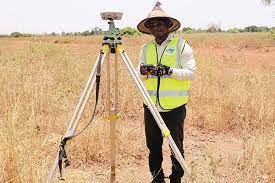
If you're considering a career in real estate, you may be wondering about the benefits and drawbacks of being a real estate agent. There are both advantages and disadvantages to entering the real estate industry, and it's important to consider both before taking the plunge.
In this blog post, we'll take a look at the pros and cons of becoming a real estate agent so you can make an informed decision.
Who is a Real Estate Agent?
A real estate agent is a licensed professional who assists individuals or businesses in buying or selling properties. They act as a middleman between the buyer and the seller, helping them to navigate through the complexities of real estate transactions.
Real estate agents can work independently or for a real estate brokerage firm, and their income is typically based on commissions earned from successful transactions. Becoming a real estate agent can be a fulfilling and lucrative career path for those who are passionate about real estate and enjoy working with people.
However, it is not without its challenges and drawbacks. In this blog post, we'll discuss the pros and cons of becoming a real estate agent to help you decide if it's the right career choice for you.
The Pros of Becoming a Real Estate Agent
If you’re considering becoming a real estate agent, you may already know that it’s a dynamic and rewarding profession. However, here are some of the top pros of being a real estate agent that might inspire you even more:
1. Flexibility: As a real estate agent, you can set your own schedule, giving you the freedom to work around other commitments or take time off when you need to.
2. Earning potential: The income of a real estate agent varies depending on a range of factors, but it’s possible to earn a lucrative income in this industry.
3. Variety: Working in real estate is never boring. Every day brings different challenges and opportunities to help clients buy or sell homes.
4. Building relationships: Real estate agents get to know their clients and develop strong relationships with them. This can lead to repeat business and referrals.
5. Self-motivation: As an agent, you’ll be your own boss, setting your goals and strategies for growing your business. You’ll need to be motivated and self-driven to succeed in this field.
6. Growth potential: Real estate agents can take advantage of many opportunities for career growth, from earning additional certifications to branching out into property management or even starting their own brokerage.
In summary, the pros of becoming a real estate agent are the flexibility, earning potential, variety of work, relationship building, self-motivation, and growth potential that come with working in this field. While the job can be challenging, it can also be highly rewarding for those who are committed and driven.
The Cons of Becoming a Real Estate Agent
While there are many advantages to becoming a real estate agent, there are also some downsides that need to be considered. Here are some of the cons of this profession:
1. Irregular income: Unlike salaried professions, real estate agents' income can vary from month to month. It may take some time to build up a steady client base and income, which can make budgeting and financial planning difficult.
2. Long and unpredictable hours: Real estate agents often work weekends and evenings, when their clients are available to view properties. This can make it challenging to maintain a work-life balance and can be tough for those with families or other commitments.
3. High competition: The real estate industry can be highly competitive, with many agents vying for the same clients and properties. Agents must be skilled at networking, marketing themselves, and staying up-to-date on industry trends to remain competitive.
4. Physical demands: Real estate agents are often on their feet for extended periods of time, showing properties and attending open houses. This can be physically demanding and may require a certain level of fitness and stamina.
5. Legal and ethical responsibilities: Real estate agents have a legal and ethical responsibility to their clients, which can result in added stress and liability. Agents must be knowledgeable about the laws and regulations in their area and ensure they are acting in the best interests of their clients at all times.
Despite these challenges, many people find that a career in real estate can be rewarding and fulfilling. It's important to carefully consider the pros and cons before making the decision to pursue this career path.
So, Should You Become a Real Estate Agent?
After weighing the pros and cons of becoming a real estate agent, the answer to whether you should pursue a career in real estate largely depends on your personal goals, interests, and personality.
If you're driven by the potential to make a high income, enjoy working with people, and have a natural sales ability, then real estate might be the perfect fit for you. Additionally, if you thrive in a fast-paced, competitive environment, the hustle and bustle of the industry might energize you.
On the other hand, if you don't like the idea of working evenings and weekends, don't have the drive to self-motivate, or have difficulty dealing with rejection, real estate may not be the best fit.
Ultimately, if you're willing to put in the hard work, dedication, and time to build your client base, network, and market your services, the rewards of a successful career in real estate can be substantial. However, it's important to understand that it's not a quick or easy path to success.
In the end, the decision to become a real estate agent is a personal one that should be made after careful consideration of both the pros and cons, as well as your own strengths and interests.























